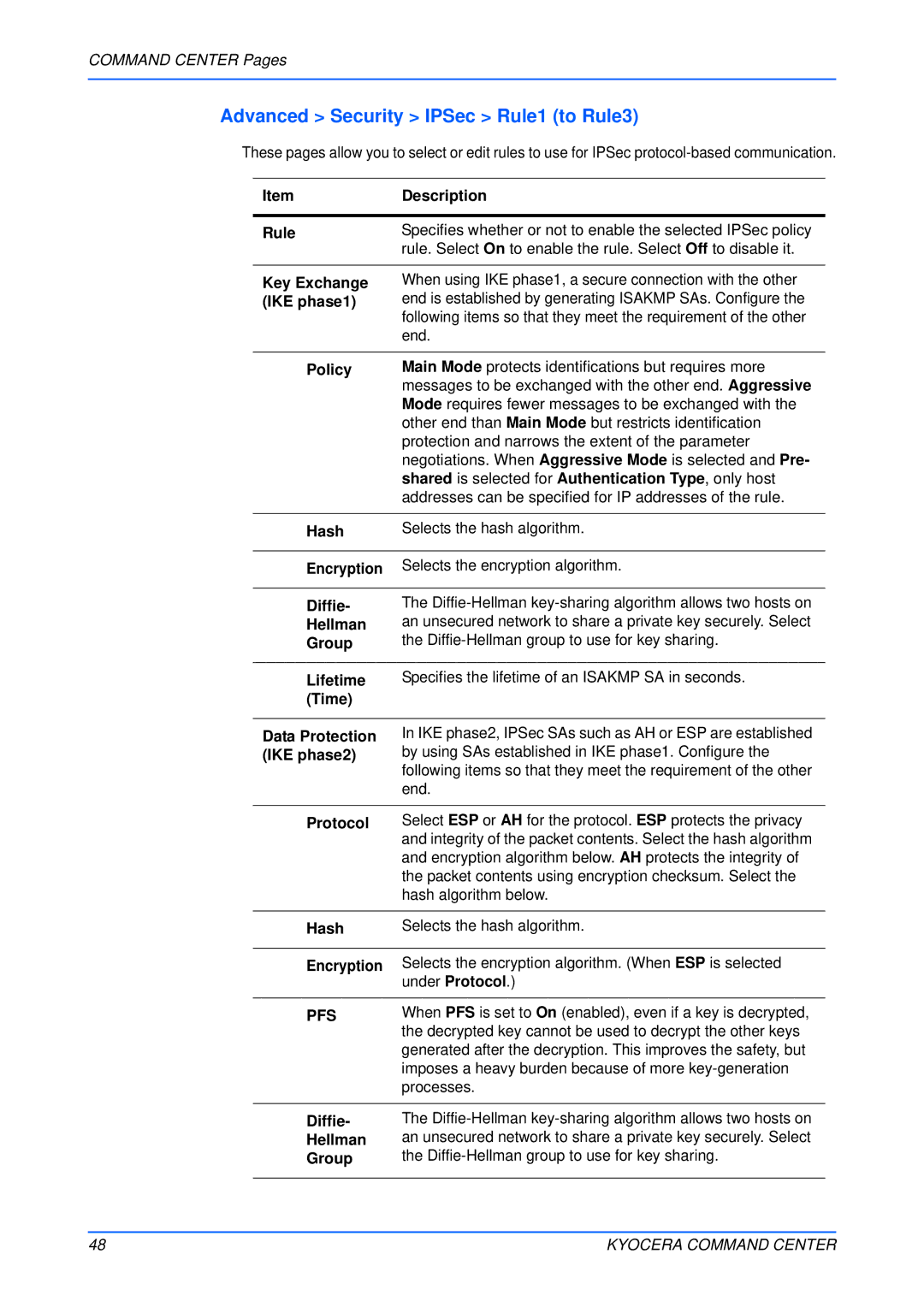
COMMAND CENTER Pages
Advanced > Security > IPSec > Rule1 (to Rule3)
These pages allow you to select or edit rules to use for IPSec
Item | Description |
|
|
Rule | Specifies whether or not to enable the selected IPSec policy |
| rule. Select On to enable the rule. Select Off to disable it. |
|
|
Key Exchange | When using IKE phase1, a secure connection with the other |
(IKE phase1) | end is established by generating ISAKMP SAs. Configure the |
| following items so that they meet the requirement of the other |
| end. |
|
|
Policy | Main Mode protects identifications but requires more |
| messages to be exchanged with the other end. Aggressive |
| Mode requires fewer messages to be exchanged with the |
| other end than Main Mode but restricts identification |
| protection and narrows the extent of the parameter |
| negotiations. When Aggressive Mode is selected and Pre- |
| shared is selected for Authentication Type, only host |
| addresses can be specified for IP addresses of the rule. |
|
|
Hash | Selects the hash algorithm. |
|
|
Encryption | Selects the encryption algorithm. |
|
|
Diffie- | The |
Hellman | an unsecured network to share a private key securely. Select |
Group | the |
|
|
Lifetime | Specifies the lifetime of an ISAKMP SA in seconds. |
(Time) |
|
Data Protection (IKE phase2)
In IKE phase2, IPSec SAs such as AH or ESP are established by using SAs established in IKE phase1. Configure the following items so that they meet the requirement of the other end.
Protocol | Select ESP or AH for the protocol. ESP protects the privacy |
| and integrity of the packet contents. Select the hash algorithm |
| and encryption algorithm below. AH protects the integrity of |
| the packet contents using encryption checksum. Select the |
| hash algorithm below. |
|
|
Hash | Selects the hash algorithm. |
|
|
Encryption | Selects the encryption algorithm. (When ESP is selected |
| under Protocol.) |
|
|
PFS | When PFS is set to On (enabled), even if a key is decrypted, |
| the decrypted key cannot be used to decrypt the other keys |
| generated after the decryption. This improves the safety, but |
| imposes a heavy burden because of more |
| processes. |
Diffie-
Hellman
Group
The
48 | KYOCERA COMMAND CENTER |
